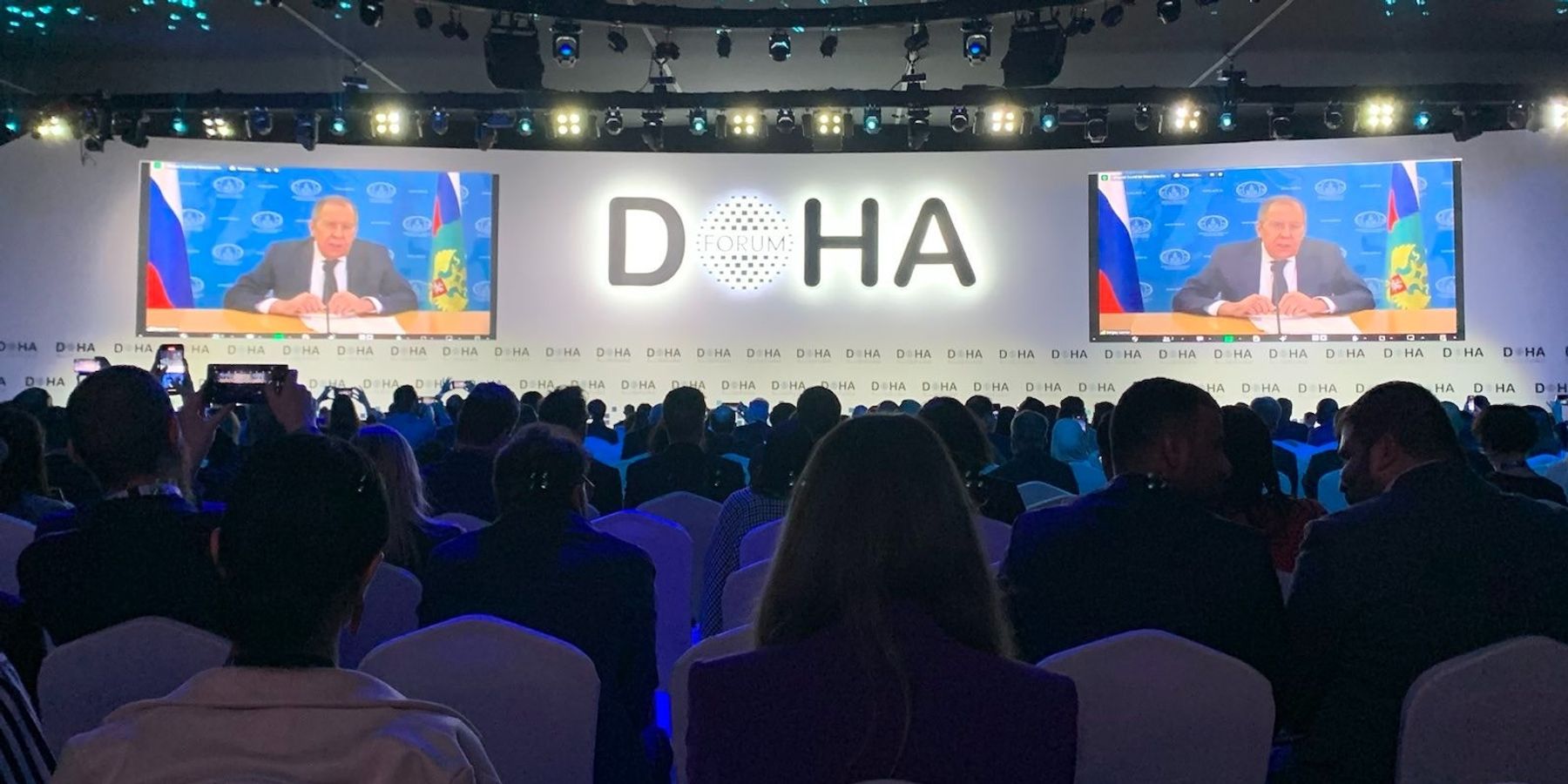DOHA, QATAR — In remarks Sunday at the 21st Doha Forum in Qatar, Russian foreign minister Sergey Lavrov seemed to revel in what is becoming a groundswell of international frustration with the United States over its policies in Israel. Despite Russia’s own near-isolated status after its 2022 invasion of Ukraine, Lavrov glibly characterized the U.S. as on the wrong side of history, the leader of the dying world order, and the purveyor of its own brand of “cancel culture.”
“I think everybody understands that this (Gaza war) did not happen in a vacuum that there were decades of unfulfilled promises that the Palestinians would get their own state,” and years of political and security hostilities that exploded on Oct. 7, he charged. “This is about the cancel culture, whatever you don’t like about events that led to the current situation you cancel. Everything that came before February 2022, including the bloody coup (in Ukraine) and the unconstitutional change of power … all this was canceled. The only thing that remains is that Russia invaded Ukraine.”
Lavrov, beamed in from Russia to the international audience in Doha, went fairly unchallenged, though his interviewer James Bays, diplomatic editor at Al Jazeera, attempted to corner him on accusations stemming from Russia’s own bloody record in Chechnya in the 1990s and and 2000s and its ongoing military campaign in Syria, which Lavrov noted was at the “behest” of the Syrian government.
On the issue of the failed ceasefire vote at the UN Security Council, of which Russia is a permanent veto member, Lavrov said, “we strongly condemn the terrorist attack against Israel. At the same time we do not think it is acceptable to use this (terrorist) event for collective punishment of millions of Palestinian people.” Did he condemn the United States for vetoing the ceasefire measure? “It’s up to the regional countries and the other countries of the world to judge,” he declared.
When asked if there was a “stalemate” in the Russian war in Ukraine, and what the Russians may have gained from their invasion in 2022, he said simply, “it’s up to the Ukrainians to understand how deep a hole they are in and where the Americans have put them.”
On whether a ceasefire may be in the offing in that war Lavrov said, “a year and half ago (Zelensky) signed a decree prohibiting any negotiations with the Putin government. They had the chance in March and April 2022, very soon after the beginning of the special military operation, where in Istanbul the negotiators reached a deal with neutrality for Ukraine, no NATO, and security guarantees…it was canceled,” he added, because the Americans and Brits wanted to “exhaust (Ukrainians) more.”
Lavrov gleefully piggybacked on themes from an earlier forum panel on the Global South. He accused “the United States and its allies” of building “the model of globalization, which they thought would serve them well.” But now, Lavrov contends, the unaligned are using “the principles and instruments of globalization to beat the West on their own terms.” As for Russia, Lavrov deployed a little “cancel culture” of his own, cherry picking the high points of his country's history over the last 200 years to project a nation that he boasts will emerge unscathed by Western assaults today.
“In the beginning of the 19th century Napoleon (rose European armies) against Russia and we defeated him; in the 20th century Hitler did the same. We defeated him and became stronger after that as well,” he said. With the Ukraine war, the West will find “that Russia has already become much stronger than it was before this.”
- Diplomacy Watch: New revelations shed light on early talks ›
- Why the Kremlin may be sweating the war in Israel and Gaza ›
















